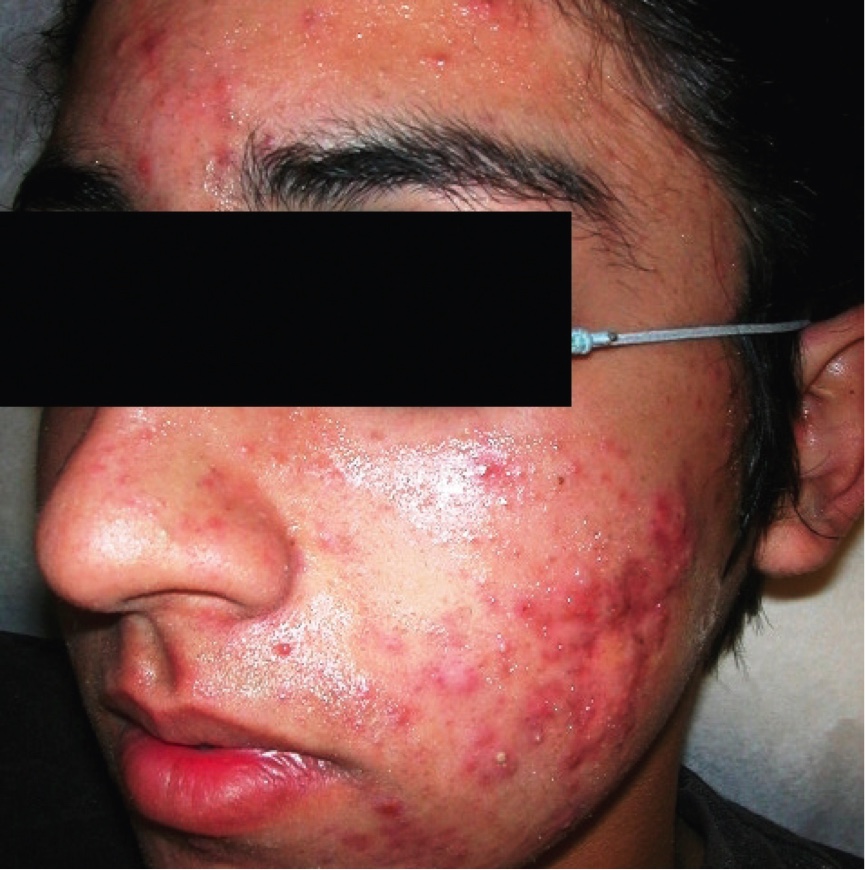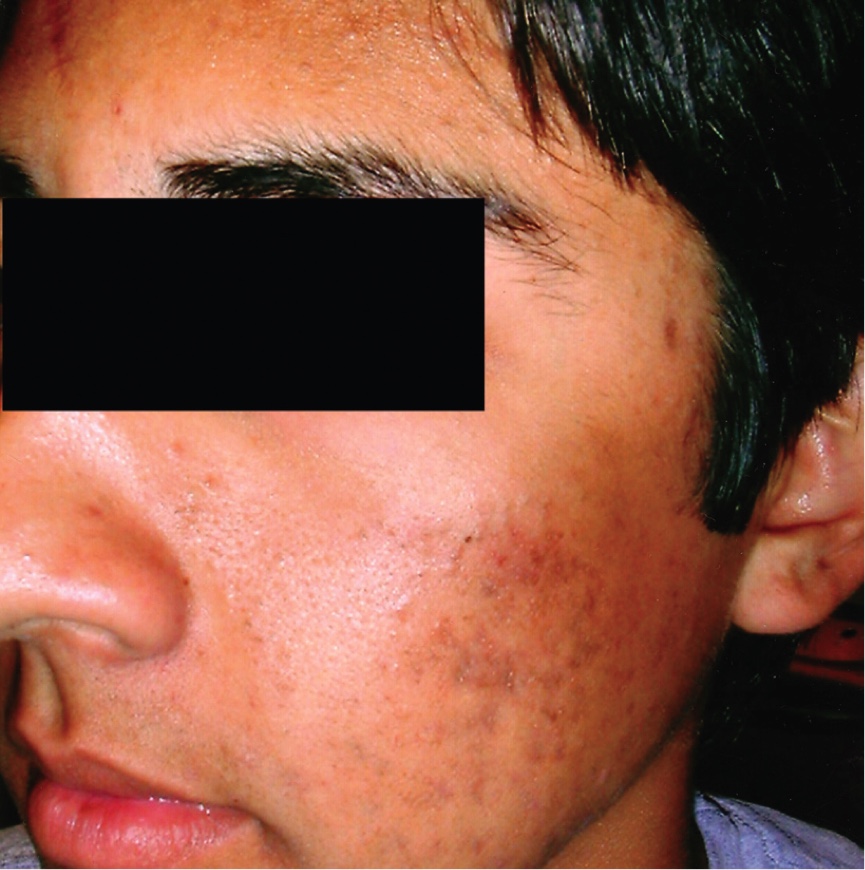Acne


Acne is an extremely common skin condition that affects a considerably high proportion of young and mature adults.
It is most common in teenagers but because it is influenced by hormonal changes it can create issues around puberty, in and around period time, and in the peri & menopausal woman.
In Brief:
Acne most commonly develops on the Face Back and Chest and is often caused by a build up of sebum in and around the hair follicle. This results in a stagnation of oil and a build up of bacteria in particular p.acnes that block the pores.
There are 6 main types of spot that appear.
- blackheads; small black or yellowish bumps that develop on the skin. They are not filled with dirt, but are black because the inner lining of the hair follicle produces colour.
- whiteheads; have a similar appearance to blackheads, but may be firmer and will not empty when squeezed.
- papules; small red bumps that may feel tender or sore.
- pustules; similar to papules, but have a white tip in the centre, caused by a build-up of pus.
- nodules; large hard lumps that build up beneath the surface of the skin and can be painful.
- cysts; the most severe type of spot caused by acne; they’re large pus-filled lumps that look similar to boils and carry the greatest risk of causing permanent scarring.
Treatment:
Depends on the severity, age , what treatments the patient has had before and compliance.
Lynn as a Nurse prescriber can give antibiotic therapy and or prescribe high strength Retinols if required but would always work with the GP wherever possible.
- Antibiotics; typically a 6 month course of Erythromycin or type of Tetracycline.
- Cosmecueticals: contain products to increase cell turnover and reduce oil production.
- Dermalux Phototherapy using a combination of LED’s to destroy bacteria, reduce inflammation and increase healing collagen.
- Hydrafacial; the ultimate in deep cleansing and exfoliation to eliminate dead skin cells and restore hydration and vitality to the skin tissues.
- Microneedling facials; which work to breakdown scar tissue and stimulate the skin cells to begin cell repair. The process allows the application and deep penetration of highly potent topical ingredients to help with management of the condition.
- Isotretinoin: Dermatologist only; This is a highly effective treatment for severe or persistent acne and the improvements can be long-lasting in those who complete a course of treatment. It does, however, have the potential to cause a number of serious side effects and can be prescribed only under the supervision of a consultant dermatologist.
